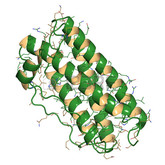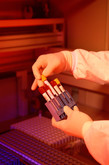Biosimilars/Research
Positive phase III results for Sandoz etanercept biosimilar
Results of a study of Sandoz’s etanercept biosimilar (GP2015) compared to Amgen/Pfizer’s arthritis blockbuster Enbrel (etanercept) have shown ‘equivalent efficacy’, according to the company.
Study supports interchangeability of TNF-α biosimilars
For years, the costs of drugs have been rising. Prescription drug spending in the US rose by 12.6% in 2014 and almost 1 in 4 Americans report difficulty affording their prescriptions. A familiar situation in many countries, the escalating costs of drugs make them unaffordable for a large part of the world.
More positive phase I results for Coherus pegfilgrastim biosimilar
US-based biosimilars developer Coherus BioSciences (Coherus) announced on 11 July 2016 that follow-on results from a phase I study of its candidate pegfilgrastim biosimilar (CHS 1701) were positive.
Biosimilars for use in fertility treatment
As patents expire on originator products, there is increasing interest in developing biosimilars globally. Authors Raoul Orvieto and David Seifer from the Sheba Medical Center and Sackler Faculty of Medicine of the Tel Aviv University in Israel investigated biosimilars used in fertility treatment [1].
Safety and efficacy of Remsima in IBD patients in clinical practice
Researchers from Spain presented results from a study of the use of the infliximab biosimilar Remsima in ulcerative colitis disease patients in clinical practice after six months treatment.
Use of biosimilars in oncology in France
Biosimilar drugs are biological drugs clinically similar to their reference products. They correspond to a generic drug approach applied to biological agents. The goal of biosimilars is to open the market and to provide significantly less costly biological agents. The approval of biosimilars is abbreviated when compared to that of the reference biologicals, but includes clinical trials (distinguishing them from generics). In oncology, the currently available biosimilars filgrastim and epoetin alfa are used in supportive care. Author Dominique Leveque from the Hôpital Hautepierre, Strasbourg, France discusses the situation regarding the use of biosimilars in France [1].
Biosimilar manufacturers fail to compete in Italy
In the current global economic crisis, significant savings on healthcare spending should be made as a result of increased competition between manufacturers of off-patent biologicals or biosimilars. If only that were so, writes Professor Livio Garattini at the Centre for Health Economics, Ranica, Italy [1], who has analysed the pricing of off-patent biologicals in Italy, a country particularly hard hit by the economic downturn.
Assessment of interchangeability under the BPCI Act
The Biologics Price Competition and Innovation (BPCI) Act gives FDA the authority to designate a biosimilar as interchangeable with its reference product. This means that the biosimilar may be substituted for the originator product by the pharmacist without reference to the prescribing physician [1]. The criteria for establishing interchangeability of biosimilars, despite FDA issuing three draft guidance documents, are still not clear [2].
The ethics of biosimilars
Biosimilars in the EU have to undergo a strictly regulated comparability exercise against the reference medicinal product on the physicochemical, analytical, functional, non-clinical and clinical level. Only if a biosimilar is a close copy of the reference medicine will it be approved as a biosimilar [1]. Despite this fact, however, ethical issues have been raised on the use of granulocyte colony-stimulating factor (G-CSF, filgrastim) in healthy volunteers by the European Group for Blood and Marrow Transplantation (EBMT) and the World Marrow Donor Association (WMDA).
Assessment of biosimilarity under the BPCI Act
The Biologics Price Competition and Innovation (BPCI) Act defines a biosimilar as a product that is highly similar to the reference product notwithstanding minor differences in clinically inactive components and without clinically meaningful differences in terms of safety, purity, and potency. Although draft guidances issued by FDA do begin to clarify the issue, little or no discussion regarding how similar is considered highly similar is given in the BPCI Act and no criteria for assessing biosimilarity were mentioned [1].













